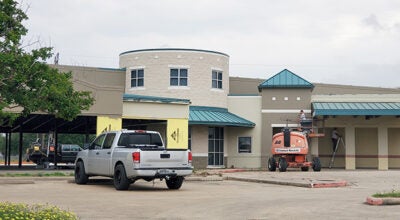County files for $2.1 million in BP settlement
Published 6:23 pm Monday, July 13, 2015
Oil spill money to reinvigorate coastal restoration projects
BEAUMONT — The Jefferson County Commissioners’ Court staked its claim to $2.1 million of the state’s $788 million in damages from energy giant BP Monday — just a week and a half after BP reached a record $18.7 billion settlement with the five Gulf Coast states devastated by the company’s 134 million gallon oil spill in 2010.
Michael “Shane” Sinegal, County Commissioner for Precinct 3, said the Court would have been happy to receive any amount of money, but $2.1 million will allow the county to seriously reinvigorate several coastal projects in the McFaddin National Wildlife Refuge.
“We already have designated projects to spend this on,” Sinegal said Monday afternoon. “Every bit we can use is going to funnel right into our plans for the dune restoration along McFaddin Beach, the siphons in our Gulf Intracoastal Waterway — and if we have any extra dollars to put toward getting Highway 87 back on the map, you know myself and Judge Jeff Branick are going to fight for that.”
Fred Jackson, assistant to Jefferson County Judge Jeff Branick, said it’s unclear how long it will actually take for any of the settlement money to trickle down to the county and city agencies who have waited for this five-year battle to end.
But regardless of the waiting period, Jackson said, the Commissioners’ Court has always prioritized restoring the McFaddin dunes as “priority No. 1, with the siphons for the Intracoastal Waterway coming in a close second.”
The Commissioners’ Court updated both of those projects Monday afternoon, although the as-yet unreceived BP dollars were left out of the equation.
The Court unanimously awarded Apollo Environmental Strategies, Inc. a contract for $3,872,218.60 to complete Phase II of the dune restoration project. Apollo Environmental was also awarded the first phase of the project. When the Beaumont-based company’s work is complete for both phases, County Engineering Director Don Rao said, the county will have a 10 to 11 mile clay berm, or core foundation, for the future dune system along McFaddin Beach.
Branick said the $3.8 million awarded to Apollo Environmental Monday will come from the Round 2.2 of the Hurricane Ike Disaster program. Money from the BP settlement may be used for future phases of the project, like covering the clay berm with offshore sand to make the official dune system.
The commissioners also made a $234,120 change order to its agreement with LGA Engineering, Inc. for the siphons crossing underneath the north side of the Intracoastal Waterway to the south side, bringing the total project from $129,700 to $363,820.
“LGA started their work in 2001, 2002 — conducting different segments to the study for our Salt Bayou Restoration Plan,” Branick said Monday. “The first (part of the study) was to monitor our coastline. We’re losing about 25 feet of our land each year, and storms worsen that loss significantly. We’ve lost about 350 feet of coast over the last 10 years.
“The second study was for our barriers protecting the marsh, and now they’re doing studies for bringing water from the higher marsh in the north to the lower marsh in the south. It’s a multi-year contract, and we didn’t want to switch (engineers) mid-stream.”
Branick said the current addition to the Salt Bayou Restoration Plan will be paid for by a Texas Parks and Wildlife Foundation Grant, but — like the dune restoration project — money from the BP spill may come into play at a later date.
The $2.1 million in damages for Jefferson County is just a fraction of the total $788 million awarded to the state of Texas. When the BP settlement was announced July 2, Texas Gov. Greg Abbott said $638 million of the state’s money is slated for restoration projects, with the remaining $150 million reserved for economic damages.
The settlement agreement grants Texas the lowest amount in damages. Louisiana took the lion’s share with $6.8 billion, followed by Florida with $3.25 billion, Alabama with $2.3 billion and Mississippi with $2.2 billion.
The entire $18.7 billion agreement assigns:
• $8.1 billion for natural resource damages, including $1 billion already paid in early restoration projects
• $5.5 billion for Clean Water Act civil penalties, subject to the RESTORE Act
• $4.9 billion for state economic losses
• $232 million to address any unknown natural resource damages.
Twitter: @crhenderson90





